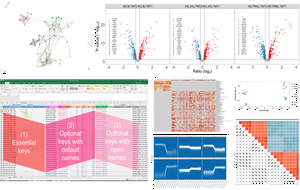Qiang Zhang
Instructor of Medicine
Washington University in St. Louis
Biography
Qiang Zhang is a researcher at Washington University in St. Louis. His research interests include mass spectrometry-based proteomics and automation in data analysis.
Interests
- Mass spectrometry
- R programming
Education
-
PhD in Physical Chemistry, 2003
University of California - Santa Barbara
-
Master in Physical Chemistry, 1998
Xiamen University
-
BSc in Physical Chemistry, 1995
Xiamen University









